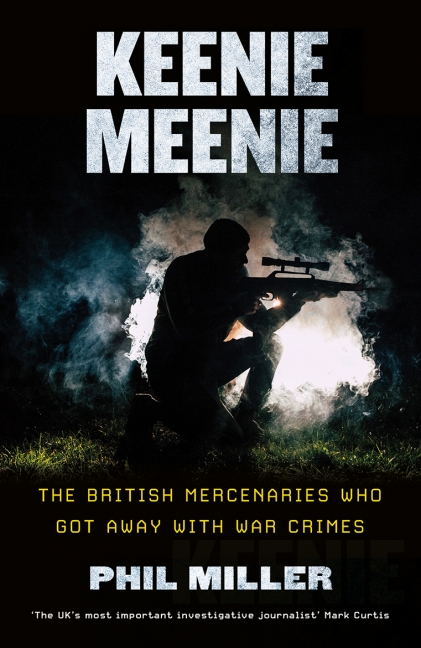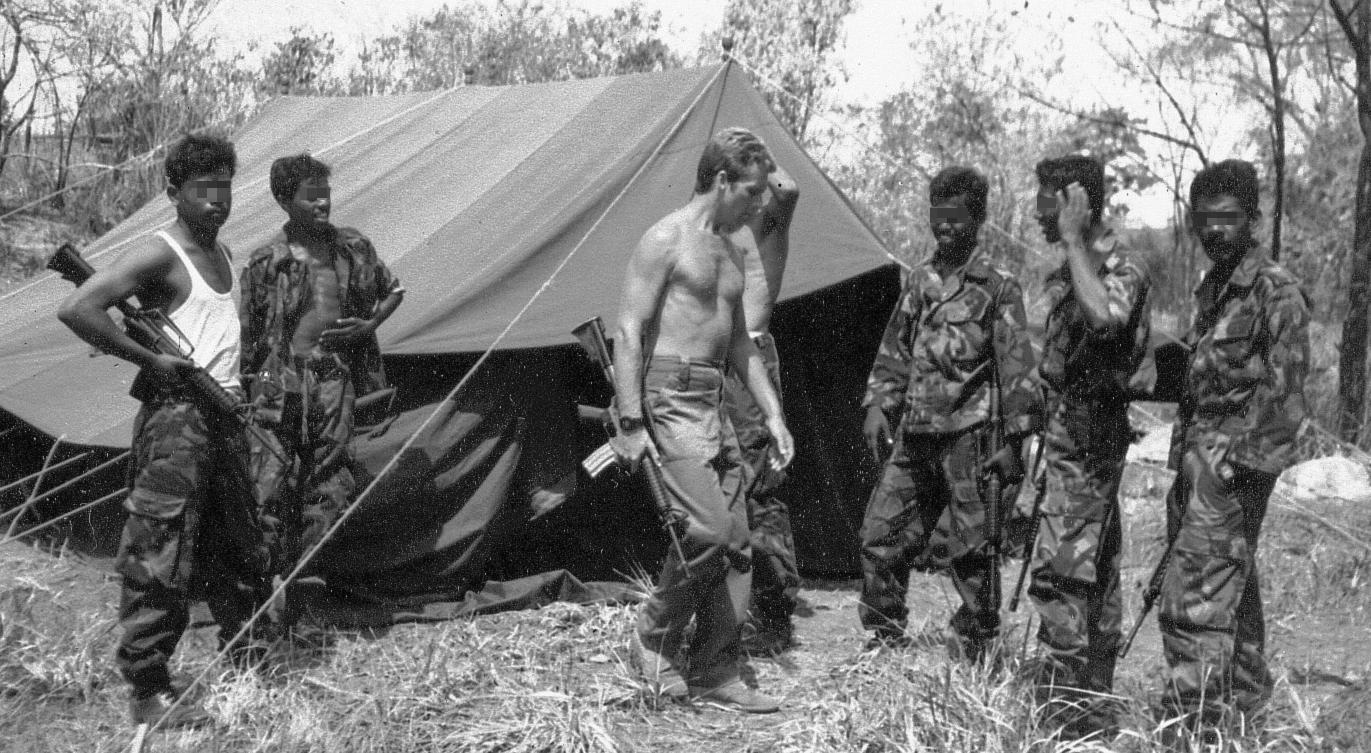by Tamil Guardian, London, February 8, 2020
Photograph courtesy of Journalists for Democracy Sri Lanka (JDS)
This month saw the release of an explosive new book that documents how a private British company formed of former Special Air Service (SAS) veterans turned mercenaries, went on to effectively set up one of Sri Lanka’s most notorious military units – one that has been accused of committing egregious mass atrocities.
Authored by Phil Miller, ‘Keenie Meenie: The British Mercenaries Who Got Away with War Crimes’, goes into meticulous detail of how a band of former British soldiers trained and even flew helicopters for the Sri Lankan military whilst massacres were reportedly underway, all under the watchful eye of the UK Foreign Office.
With several years of extensive research, which involved uncovering declassified files from the National Archive and Freedom of Information requests, alongside interviews with both survivors and perpetrators, Miller meticulously reconstructs the events of the time. The author follows Keenie Meenie Services (KMS) as it rose through the corridors of power in both London and Colombo, seemingly with the approval of the British government, to help raise Sri Lanka’s Special Task Force (STF). Though many of the files remained redacted by British authorities, Miller doggedly pieces together a remarkably accurate picture of events, tracing how meetings in London led to bullets and bombs in the Tamil homeland, as well as Nicaragua and Oman. And as the company’s involvement deepened, the massacres of Tamils only increased.
Despite being reinforced with hundreds of footnotes, Miller deftly showcases how KMS activities had very real repercussions for thousands around the world. The writing style masterfully brings events which have been buried under hundreds of government files to life – from the corridors of Whitehall to the villages of Batticaloa. The most riveting passages juxtapose many of these seemingly benign cables with horrific testimonies of their impact from Tamil survivors. The prologue of the book, which begins with a witness account of a white man accompanying Sri Lankan troops as they commit a massacre in Piramanthanaru, is immediately gripping. And as the book continues, the retracing of KMS activities around the world makes for truly compelling reading. Not only does it shed light on the shadowy world of mercenaries, but for those looking to understand British foreign policy in Sri Lanka and around the world, it is a vital and fascinating read.
The book contains dozens of startling revelations – including reports that British mercenaries may have flown Sri Lankan military helicopters whilst soldiers carried out massacres and taught them gruesome tactics such as placing grenades in wine glasses and dropping them on Tamil villages. These accounts are even more poignant given that many of those responsible, from the mercenaries aboard the helicopters to Sri Lankan soldiers and those giving direction in London and Colombo, remain alive and unpunished. Meanwhile, Tamil survivors of the killings that KMS was reportedly involved in, continue to mourn their loved ones and demand justice.
Miller’s work poses serious questions for the British government. As he documents, Sri Lanka remains proud of its history with KMS, with the names of trainers enshrined at a military base. However, the UK is still to reckon with its past engagement with Sri Lanka and for the atrocities that a British company played a key role in. As Britain continues to maintain its close relationship with the Sri Lankan military to this day, this book’s key findings add to the body of work and campaign efforts by those around the world to hold both Sri Lankan and the British governments to account.
See more on the book from Pluto Press here.
Phil Miller will be launching the book in London on Sunday 9th February 2020. See more on the event here.

